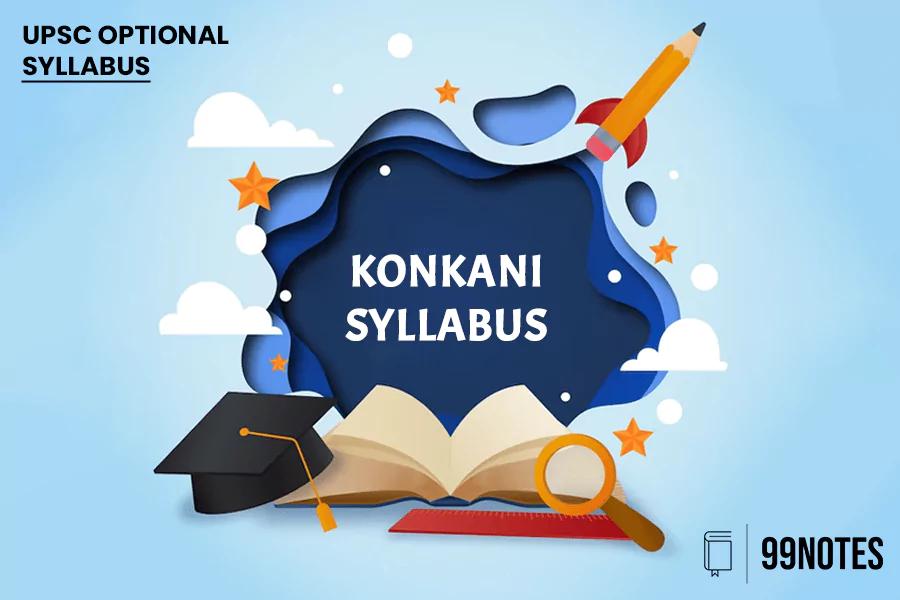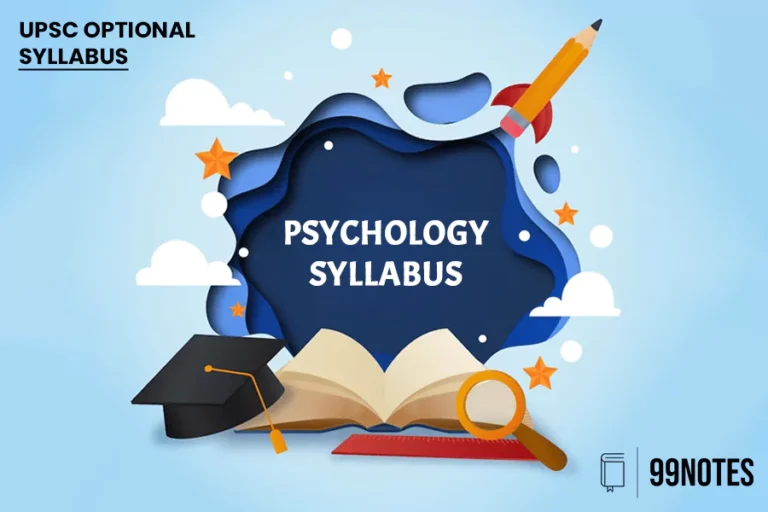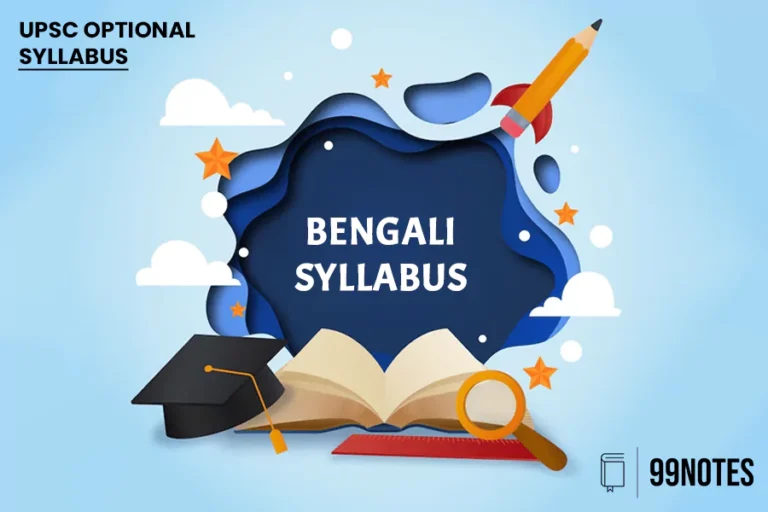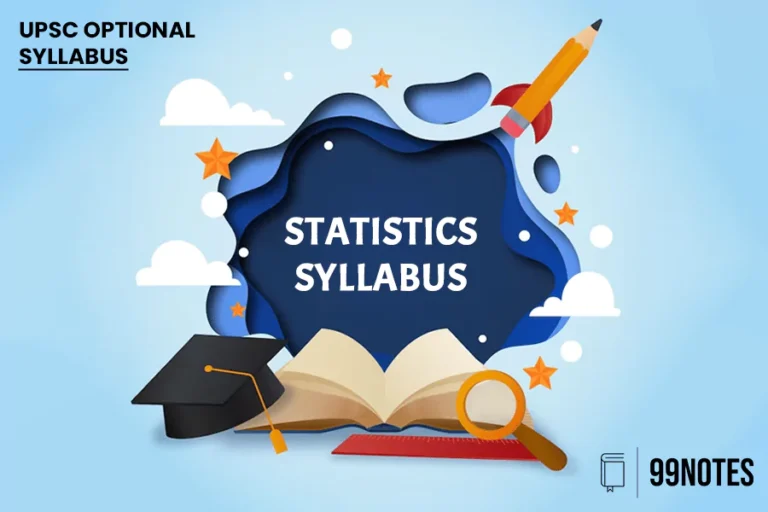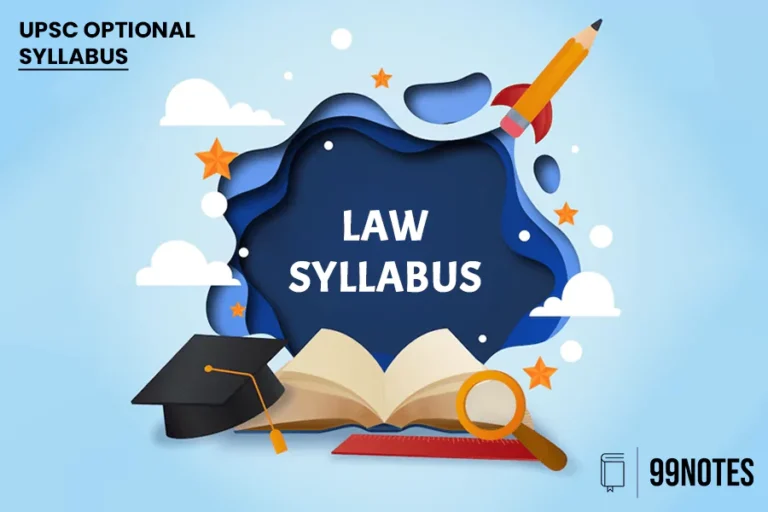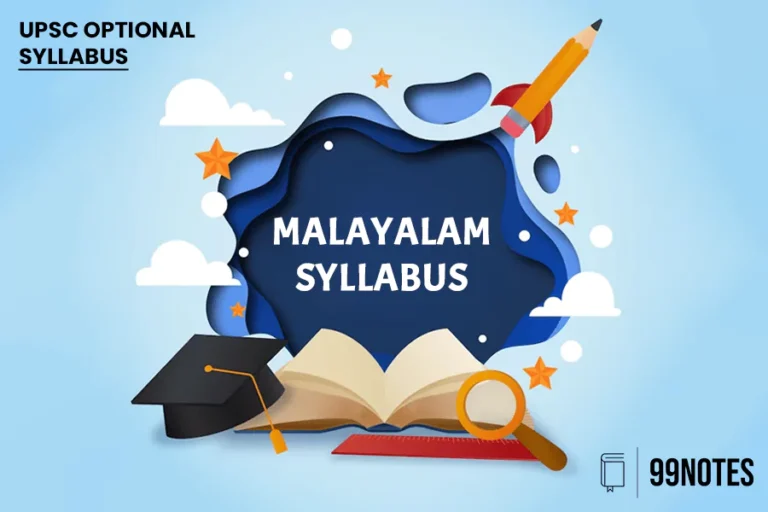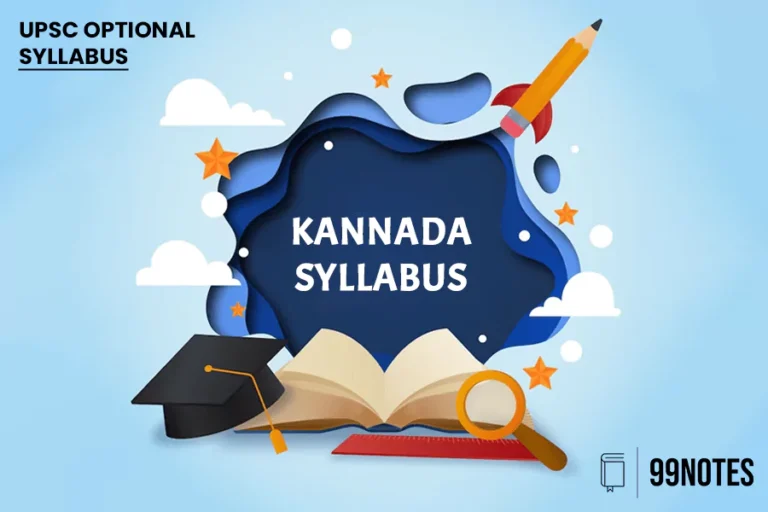UPSC Konkani Literature Syllabus For CSE Mains 2024
UPSC Konkani Literature Syllabus
➼ CLICK HERE TO DOWNLOAD Konkani Literature Optional Syllabus pdf
UPSC Konkani Literature Syllabus Paper‐I
(Answers must be written in Konkani)
Section A
History of the Konkani Language :
-
Origin and development of the language and influences on it.
-
Major variants of Konkani and their linguistic features.
-
Grammatical and lexicographic work in Konkani, including a study of cases, adverbs, indeclinables and voices.
-
Old Standard Konkani, New Standard and Standardisation problems.
Section B
History of Konkani Literature
Candidates would be expected to be well-acquainted with Konkani literature and its social and cultural background and consider the problems and issues arising out of them.
-
History of Konkani literature from its probable source to the present times, with emphasis on its major works, writers and movements.
-
Social and cultural background of the making of Konkani literature from time to time.
-
Indian and Western influences on Konkani literature, from the earliest to modern times.
-
Modern literary trends in the various genres and regions including a study of Konkani folklore.
UPSC Konkani Literature Syllabus Paper‐II
(Answers must be written in Konkani)
Textual Criticism of Konkani Literature
The paper will be designed to test the candidate’s critical and analytical abilities. Candidates would be expected to be well-acquainted with Konkani Literature and required to have first-hand reading of the following texts :
Section A : Prose
-
(a) Konkani Mansagangotri (excluding poetry) ed. by Prof : Olivinho Gomes.
(b) Old Konkani language and literature—the Portuguese Role
-
(a) Otmo Denvcharak—a novel by A. V. da Cruz.
(b) Vadoll ani Varem—a novel by Antonio Pereira.
(c) Devache Kurpen—a novel by V.J.P. Saldanha.
-
(a) Vajralikhani—Shenoy goem-bab-An anthology-ed. by Shantaram Varde Valavalikar.
(b) Konkani Lalit Niband—Essays-ed. by Shyam Verenkar.
(c) Teen Dasakam—An anthology—ed. by Chandrakant Keni.
-
(a) Demand—Drama-by Pundalik Naik.
(b) Kadambini: A Miscellany of Modern Prose—ed. by Prof. O.J.F. Gomes and Smt. P.S. Tadkodkar.
(c) Ratha Tujeo Ghudieo—by Smt. Jayanti Naik.
Section B : Poetry
-
(a) Ev ani Mori : Poetry by Eduardo Bruno de Souza.
(b) Abravanchem Yadnyadan—by Luis Mascarenhas.
-
(a) Godde Ramayan—ed. by R.K. Rao.
(b) Ratnahar I and II—collection of poems—ed. R. V. Pandit.
-
(a) Zayo Zuyo—poems- Manohar L. Sardessai.
(b) Kanadi Mati Konkani Kavi—Anthology ofPoems—ed. Pratap Naik.
-
(a) Adrushatache Kalle—Poems by Pandurang Bhangui.
(b) Yaman—Poems by Madhav Borkar.

